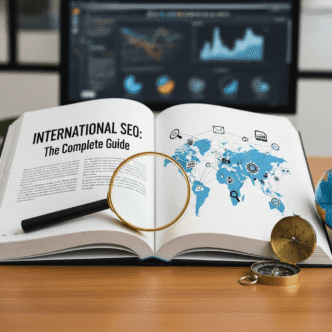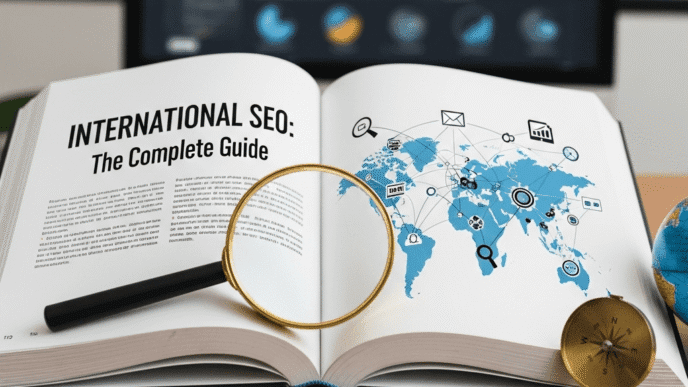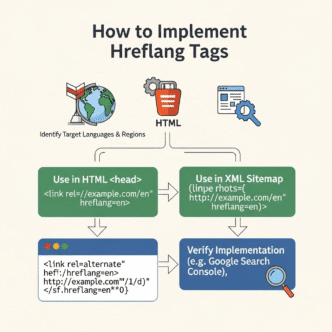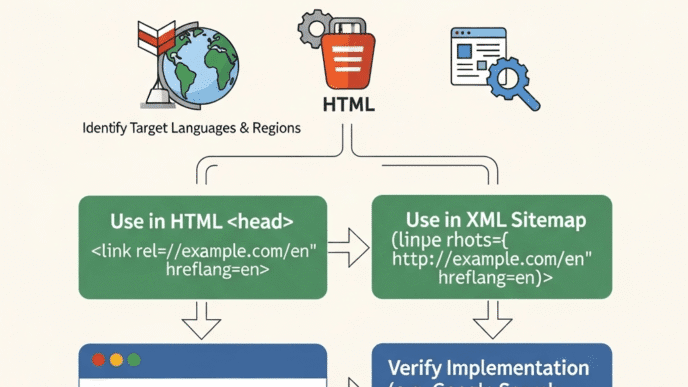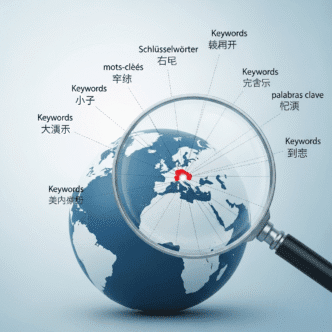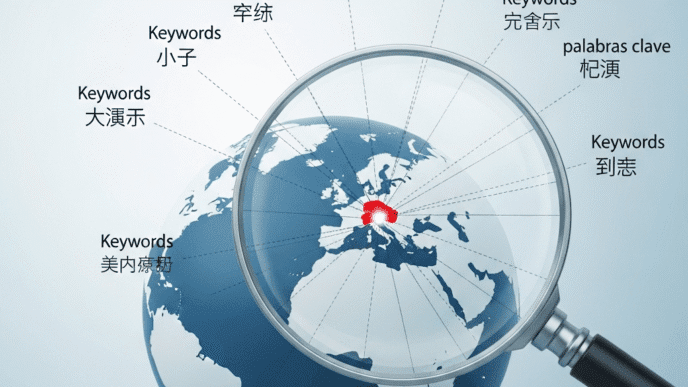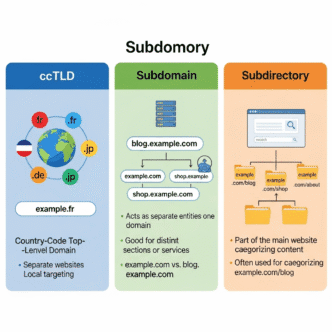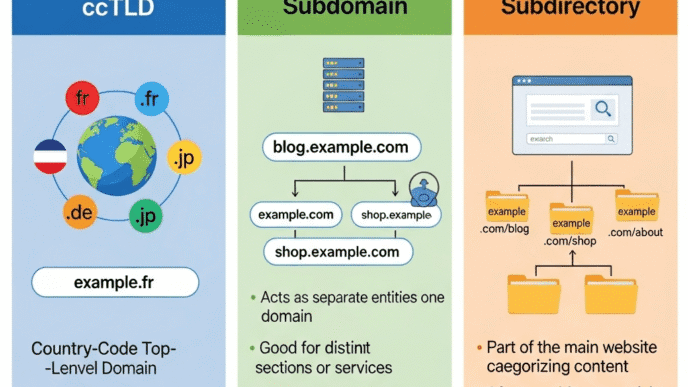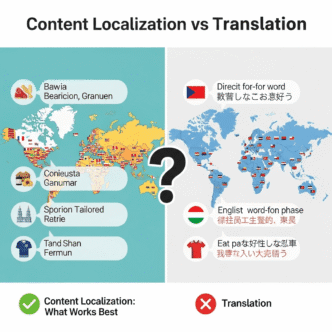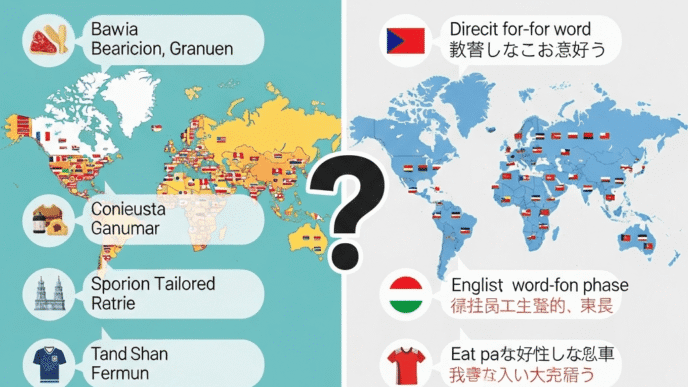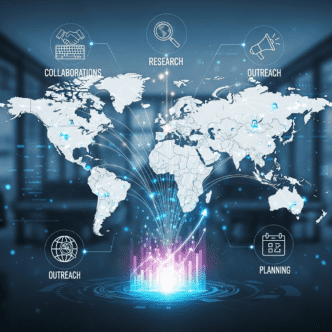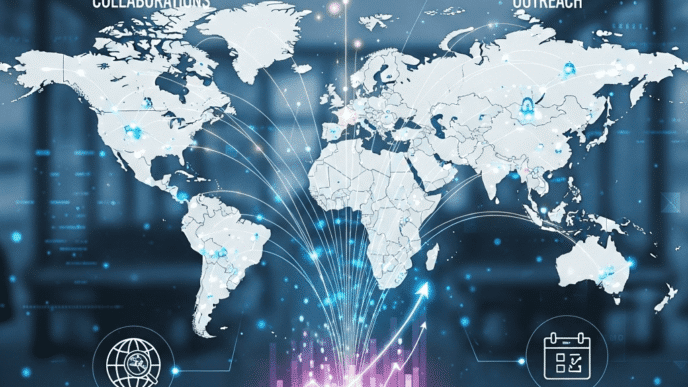The enterprise SEO landscape is experiencing a seismic shift. 47% of marketers are already implementing AI SEO tools to improve search efficiency, and another 84% are using them to identify and leverage emerging search trends. For enterprise organizations managing millions of pages, AI isn’t just an advantage—it’s becoming essential for survival.
Table of Contents
Toggle
I. AI-Powered Content Strategy & Creation
Think about managing content for an enterprise website with hundreds of thousands of pages. Traditional manual approaches simply can’t keep up. AI is changing this game completely.
A. How Can AI Transform Content Creation at Scale?
1. Automated Content Generation
AI is used in 72% of content strategies to recommend SEO-friendly topics and keywords, while 70% of marketers use AI for brainstorming and outlining content. Modern AI tools can:
- AI Blog Post Creation: Generate first drafts for product descriptions, category pages, and location-based content
- Dynamic Content Optimization: Real-time content updates based on search trends and user behavior
- Multilingual Content Scaling: Automated translation and localization for global enterprise sites
- Product Description Automation: AI-generated unique descriptions for millions of e-commerce products
2. Content Gap Analysis Using AI
Smart enterprises are using AI to identify content opportunities their competitors miss. These systems:
- Competitor Content Mapping: AI analyzes competitor content strategies across thousands of pages
- Search Intent Prediction: Machine learning identifies content opportunities based on SERP analysis
- Topic Cluster Generation: AI creates comprehensive topic maps for enterprise content planning
- Content Performance Forecasting: Predictive models estimate content ROI before creation
3. AI-Enhanced Content Quality Control
52% of SEO professionals noticed performance improvement from using AI for on-page SEO. These systems provide:
- Automated Content Scoring: AI evaluates content quality, readability, and SEO optimization
- Plagiarism and Duplicate Content Detection: Scale content uniqueness verification across millions of pages
- Brand Voice Consistency: AI ensures consistent tone and messaging across all content
- Real-time Content Optimization: Dynamic suggestions for improving existing content performance
B. What Are the Specific AI Tools for Enterprise Content?
1. Content Creation Platforms
Leading enterprises use platforms like Jasper AI for enterprise-grade content generation with brand voice training, Copy.ai for scalable content creation with workflow integration, and Writesonic for AI writing with SEO optimization features.
2. Content Optimization Tools
Case Study: Lyzr.ai, an enterprise AI platform, used AI-powered content optimization tools to increase organic traffic by 150% in just 3 months between August and October 2024. Their marketing team leveraged AI to identify missing keywords and find relevant linking opportunities.
ProTip: Start with product descriptions and FAQ content where consistency is crucial, then expand to blog content and landing pages. This phased approach helps teams adapt to AI workflows gradually.
II. AI-Driven Technical SEO Automation
Managing technical SEO for enterprise websites manually is like trying to count grains of sand on a beach. AI automation makes the impossible possible.
A. How Does AI Revolutionize Technical SEO at Scale?
1. Automated Technical Auditing
AI-powered tools save up to 50% of time spent on data analysis and interpretation. Enterprise AI systems provide:
- Site Health Monitoring: AI continuously monitors millions of pages for technical issues
- Crawl Budget Optimization: Machine learning optimizes crawler behavior and resource allocation
- Core Web Vitals Prediction: AI predicts performance issues before they impact rankings
- Schema Markup Automation: AI generates and implements structured data across page templates
2. AI-Powered Site Architecture
Modern AI systems handle complex site architecture challenges:
- URL Structure Optimization: AI analyzes and recommends optimal URL hierarchies
- Internal Linking Automation: Machine learning creates strategic internal linking networks
- Sitemap Generation: AI-powered dynamic sitemap creation and optimization
- Redirect Management: Automated redirect chain optimization and broken link fixing
3. Performance Optimization Using AI
Advanced AI tools optimize technical performance automatically:
- Image Optimization: AI compresses and optimizes images without quality loss
- Code Optimization: AI identifies and fixes performance bottlenecks in code
- Caching Strategy: Machine learning optimizes caching rules for better performance
- Mobile Optimization: AI ensures mobile-first indexing compliance across all pages
B. Which AI Technical SEO Tools Are Essential?
1. Technical Monitoring Platforms
Enterprise-grade platforms include Botify for AI-powered log file analysis, DeepCrawl for AI site monitoring with predictive issue detection, and Screaming Frog for AI-enhanced crawling with custom extraction.
2. Performance Optimization Tools
Case Study: Expedia used machine learning solutions to fix internal link structures across their 25 million indexed pages, removing over 50,000 links pointing to 404 pages and achieving 99% link cleanliness with daily automated updates.
III. AI-Enhanced Keyword Research & Strategy
Traditional keyword research tools give you data. AI-powered keyword research gives you insights.
A. How Can AI Transform Keyword Research for Enterprises?
1. Intelligent Keyword Discovery
75% of marketers leverage AI to reduce the time spent on manual tasks like keyword research and meta-tag optimization. AI systems excel at:
- Semantic Keyword Expansion: AI identifies related keywords and search intent variations
- Competitive Keyword Gap Analysis: Machine learning finds keyword opportunities competitors miss
- Long-tail Keyword Generation: AI creates thousands of relevant long-tail keyword variations
- Search Volume Prediction: AI forecasts keyword volume trends and seasonality
2. AI-Powered Keyword Clustering
Advanced clustering capabilities include:
- Topic Modeling: AI groups keywords into logical content clusters
- Search Intent Classification: Machine learning categorizes keywords by user intent
- Keyword Difficulty Scoring: AI provides accurate keyword difficulty assessments
- Cannibalization Detection: AI identifies keyword overlap and optimization conflicts
3. Dynamic Keyword Strategy
Real-time keyword optimization features:
- Real-time Keyword Monitoring: AI tracks keyword performance changes instantly
- Keyword Opportunity Scoring: Machine learning prioritizes keywords by potential ROI
- Seasonal Keyword Optimization: AI adjusts keyword targeting based on trends
- Local Keyword Scaling: AI generates location-specific keyword strategies
B. What AI Keyword Tools Work Best for Enterprise?
1. AI-Powered Keyword Research
Leading platforms include Semrush for AI keyword suggestions and competitive analysis, Ahrefs for machine learning keyword difficulty identification, and BrightEdge for AI keyword tracking and performance forecasting.
2. Specialized AI Keyword Tools
Case Study: Rocky Brands implemented BrightEdge’s AI tools for keyword prioritization and content optimization, resulting in a 30% increase in search revenue, 74% year-over-year revenue growth, and 13% increase in new users.
ProTip: Use AI to create keyword clusters of 50-100 related terms, then build comprehensive content strategies around each cluster rather than individual keywords.
IV. AI-Driven Analytics & Performance Optimization
Data without insights is just noise. AI transforms enterprise SEO data into actionable intelligence.
A. How Does AI Transform SEO Analytics?
1. Predictive SEO Analytics
AI-driven SEO strategies achieve a 14.6% conversion rate, significantly higher than the 1.7% from traditional SEO methods. Advanced analytics provide:
- Traffic Forecasting: AI predicts organic traffic changes based on optimization efforts
- Ranking Prediction: Machine learning forecasts ranking improvements and timeframes
- ROI Modeling: AI calculates expected return on SEO investments
- Competitive Performance Prediction: AI forecasts competitor strategy impacts
2. AI-Powered Attribution Modeling
Sophisticated attribution capabilities include:
- Multi-touch Attribution: AI tracks complex customer journeys across touchpoints
- Revenue Attribution: Machine learning connects SEO efforts to business outcomes
- Conversion Path Analysis: AI identifies optimal conversion paths and optimization opportunities
- Lifetime Value Modeling: AI predicts customer lifetime value from organic traffic
3. Real-time Performance Optimization
Dynamic optimization features:
- Automated A/B Testing: AI runs continuous optimization tests across page elements
- Dynamic Content Adjustment: Machine learning optimizes content based on performance data
- Personalization at Scale: AI delivers personalized content experiences for SEO users
- Alert Systems: AI identifies performance anomalies and optimization opportunities
B. Which AI Analytics Tools Are Essential?
1. AI-Enhanced Analytics Platforms
Enterprise platforms include Google Analytics 4 for AI-powered insights and predictive metrics, Adobe Analytics for machine learning customer journey analysis, and BrightEdge for AI performance forecasting.
2. Specialized AI Analytics Tools
Success Metric: 40% of marketers have seen a 6-10% revenue increase after implementing AI in their SEO practices.
V. AI-Powered Competitive Intelligence
Staying ahead of competitors requires constant vigilance. AI makes competitive intelligence scalable and actionable.
A. How Can AI Revolutionize Competitive Analysis?
1. Automated Competitor Monitoring
82% of enterprise SEO specialists plan to invest more in AI, recognizing its critical role in competitive intelligence:
- Content Gap Analysis: AI identifies content opportunities competitors are missing
- Backlink Opportunity Discovery: Machine learning finds link building opportunities
- SERP Feature Monitoring: AI tracks competitor presence in featured snippets and rich results
- Technical SEO Benchmarking: AI compares technical performance against competitors
2. AI-Driven Market Intelligence
Advanced market analysis capabilities:
- Trend Prediction: AI identifies emerging search trends before competitors
- Market Share Analysis: Machine learning tracks organic search market share changes
- Competitive Strategy Prediction: AI forecasts competitor SEO strategies and moves
- Opportunity Scoring: AI ranks competitive opportunities by potential impact
3. Real-time Competitive Insights
Instant competitive monitoring features:
- Ranking Change Alerts: AI monitors competitor ranking movements instantly
- Content Publication Tracking: Machine learning tracks competitor content strategies
- Link Building Monitoring: AI identifies competitor link acquisition patterns
- Ad Spend Correlation: AI analyzes competitor paid/organic strategy relationships
B. What AI Competitive Intelligence Tools Are Best?
1. AI-Powered Competitive Platforms
Leading solutions include Semrush for AI competitive analysis and opportunity identification, Ahrefs for machine learning competitor backlink analysis, and SpyFu for AI competitor keyword tracking.
2. Specialized AI Monitoring Tools
ProTip: Set up AI-powered competitive alerts for your top 10 competitors, focusing on new content publication, ranking changes, and backlink acquisition.
VI. AI Implementation Strategy for Enterprise SEO
Success with AI SEO requires a structured approach. Here’s how leading enterprises are implementing AI effectively.
A. How Should You Implement AI in Your Enterprise SEO Strategy?
1. Phase 1: Foundation Building (Months 1-3)
Initial implementation steps:
- AI Tool Evaluation: Assess current tools for AI capabilities and identify gaps
- Data Infrastructure: Ensure data quality and accessibility for AI tools
- Team Training: Educate teams on AI tool usage and best practices
- Pilot Program: Start with one AI application (e.g., content optimization)
2. Phase 2: Scaling AI Applications (Months 4-9)
Expansion phase activities:
- Technical SEO Automation: Implement AI for technical monitoring and optimization
- Content Strategy AI: Deploy AI for content creation and optimization at scale
- Analytics Integration: Connect AI insights to business intelligence systems
- Competitive Intelligence: Implement AI competitive monitoring and analysis
3. Phase 3: Advanced AI Integration (Months 10-12)
Advanced implementation includes:
- Predictive Analytics: Deploy AI for forecasting and strategic planning
- Personalization: Implement AI-driven personalization for SEO users
- Custom AI Solutions: Develop proprietary AI tools for specific enterprise needs
- ROI Optimization: Use AI for continuous optimization and resource allocation
B. What Are the Key Success Factors for AI Implementation?
1. Data Quality and Governance
Essential requirements include:
- Clean Data Requirements: AI tools need high-quality, consistent data
- Data Integration: Connect all data sources for comprehensive AI analysis
- Privacy Compliance: Ensure AI tools comply with data privacy regulations
- Data Security: Implement secure data handling for AI applications
2. Team Capabilities and Training
Critical capabilities:
- AI Literacy: Train teams on AI tool capabilities and limitations
- Change Management: Prepare teams for AI-driven workflow changes
- Continuous Learning: Establish ongoing AI education programs
- Human-AI Collaboration: Define roles for human oversight and AI automation
3. Performance Measurement
Key measurement areas:
- AI ROI Tracking: Measure efficiency gains and performance improvements
- Quality Assurance: Monitor AI output quality and accuracy
- Continuous Optimization: Regularly update AI models and strategies
- Business Impact: Connect AI SEO improvements to business outcomes
VII. Future of AI in Enterprise SEO (2025 and Beyond)
The AI revolution in enterprise SEO is just beginning. AI Overviews are on the rise: 13.14% of all queries triggered AI Overviews in March 2025, up from 6.49% in January 2025.
A. What AI Trends Will Shape Enterprise SEO?
1. Advanced Machine Learning Applications
Next-generation capabilities include:
- Neural Network SEO: Deep learning for complex SEO pattern recognition
- Natural Language Processing: Advanced content optimization and user intent understanding
- Computer Vision: AI-powered image and video SEO optimization
- Voice Search Optimization: AI for conversational search and voice query optimization
2. Integrated AI Ecosystems
Comprehensive AI integration features:
- AI-First SEO Platforms: Comprehensive platforms built on AI foundations
- Cross-Channel AI: Integrated AI across SEO, PPC, social, and content marketing
- Real-time AI Optimization: Instant AI-driven optimization across all SEO elements
- Predictive AI Strategies: AI that predicts and prepares for algorithm changes
3. Emerging AI Technologies
Cutting-edge developments:
- Generative AI: Advanced content creation and optimization capabilities
- AI-Powered Automation: Fully automated SEO workflows and optimization
- Quantum Computing: Next-generation processing power for complex SEO analysis
- Edge AI: Localized AI processing for faster SEO insights and optimization
B. How Should Enterprises Prepare for AI-Driven SEO?
1. Strategic Preparation
ChatGPT achieved explosive growth with 100 million users just two months post-launch and over 200 million registered by Q1 2025, signaling mainstream AI adoption:
- AI Investment Planning: Budget allocation for AI tools and capabilities
- Talent Acquisition: Hire AI-skilled SEO professionals and data scientists
- Technology Infrastructure: Prepare systems for AI integration and processing
- Competitive Positioning: Use AI for sustainable competitive advantages
2. Operational Readiness
Implementation readiness includes:
- Process Automation: Identify processes suitable for AI automation
- Quality Control: Develop AI output quality assurance protocols
- Scalability Planning: Design AI systems that scale with business growth
- Innovation Culture: Foster experimentation with new AI applications
Expert Insight: “The enterprises that will dominate SEO in 2025 are those that successfully blend AI efficiency with human creativity and strategic thinking. AI handles the scale and automation, while humans provide the context, creativity, and strategic direction.”
VIII. Measuring AI Success in Enterprise SEO
Track the metrics that matter for AI implementation success.
A. What KPIs Should You Track for AI SEO Implementation?
1. Efficiency Metrics
67% of SEOs believe the key benefit of generative AI is in automating repetitive tasks. Key efficiency measurements:
- Time Savings: Hours saved through AI automation vs. manual processes
- Scale Improvements: Pages optimized per week/month with AI assistance
- Resource Optimization: Cost savings from AI-driven efficiency gains
- Quality Consistency: Consistency scores across AI-optimized content
2. Performance Metrics
Critical performance indicators:
- Organic Traffic Growth: AI-driven traffic improvements by channel/page type
- Ranking Improvements: Keyword ranking gains from AI optimization
- Conversion Rate Optimization: AI-driven conversion improvements
- Technical SEO Health: Technical issue resolution speed and accuracy
3. Business Impact Metrics
Bottom-line measurements:
- Revenue Attribution: Revenue directly attributed to AI SEO improvements
- Market Share Growth: Organic search market share gains
- Customer Acquisition Cost: Reduced CAC through AI SEO efficiency
- Competitive Advantage: Metrics showing AI-driven competitive gains
B. How Do You Optimize AI ROI in Enterprise SEO?
1. Continuous Optimization
AI in marketing market is valued at 47.32 billion US dollars in 2025 and is expected to grow at a CAGR of 36.6% to reach 107.5 billion by 2028. Optimization strategies include:
- AI Model Refinement: Regular updates to AI algorithms and training data
- Performance Monitoring: Real-time tracking of AI tool effectiveness
- Strategy Adjustment: Adapt AI strategies based on performance data
- Innovation Integration: Incorporate new AI capabilities as they emerge
2. Strategic Investment
ROI optimization approaches:
- Tool Selection: Choose AI tools with highest ROI potential
- Team Development: Invest in AI-skilled team members and training
- Technology Integration: Optimize AI tool integration and workflows
- Competitive Intelligence: Use AI insights for strategic decision making
Bottom Line: 86.07% of SEO professionals have already integrated AI, with 75% using AI to automate keyword research and meta-tag optimization. Enterprise SEO without AI is like trying to compete in Formula 1 with a bicycle.
Final Recommendation: Start with one AI application that addresses your biggest SEO challenge, measure its impact thoroughly, then scale successful AI implementations across your entire enterprise SEO strategy. The enterprises that move first will capture the greatest advantages in this AI-driven SEO landscape.
🚀 AI Enterprise SEO Strategy Process
Complete Implementation Framework for Scalable AI-Powered SEO
AI SEO Impact Statistics
AI SEO Implementation Process
Content Gap Analysis: Machine learning identifies competitor opportunities and search intent patterns.
Quality Control: AI ensures brand consistency and plagiarism detection across millions of pages.
Performance Optimization: Automated image compression, code optimization, and caching strategies.
Internal Linking: Machine learning creates strategic link networks and fixes broken links.
Competitive Analysis: Machine learning finds keyword gaps and opportunities.
Dynamic Optimization: Real-time keyword performance tracking and seasonal adjustments.
Attribution Modeling: Machine learning tracks complex customer journeys.
Real-time Optimization: Automated A/B testing and dynamic content adjustments.
Market Intelligence: Machine learning predicts trends and competitor moves.
Real-time Alerts: Instant notifications for ranking changes and new content.
Scaling Applications: Deployment across technical SEO and content workflows.
Advanced Integration: Custom AI solutions and ROI optimization.
3-Phase Implementation Timeline
• Data infrastructure setup
• Team training programs
• Pilot program launch
• Initial performance benchmarks
• Content strategy AI deployment
• Analytics integration
• Competitive intelligence setup
• Cross-team collaboration
• AI personalization features
• Custom AI solution development
• ROI optimization strategies
• Continuous improvement cycles
Key Benefits of AI Enterprise SEO
Success Stories
Expedia: 99% link cleanliness achieved across 25 million pages with ML automation
Rocky Brands: 30% search revenue increase and 74% YoY growth with AI keyword strategies
Future of AI in Enterprise SEO (2025+)
Ready to Transform Your SEO?
86% of SEO professionals have already integrated AI. Start with one AI application that addresses your biggest SEO challenge, measure its impact, then scale across your entire enterprise strategy.


